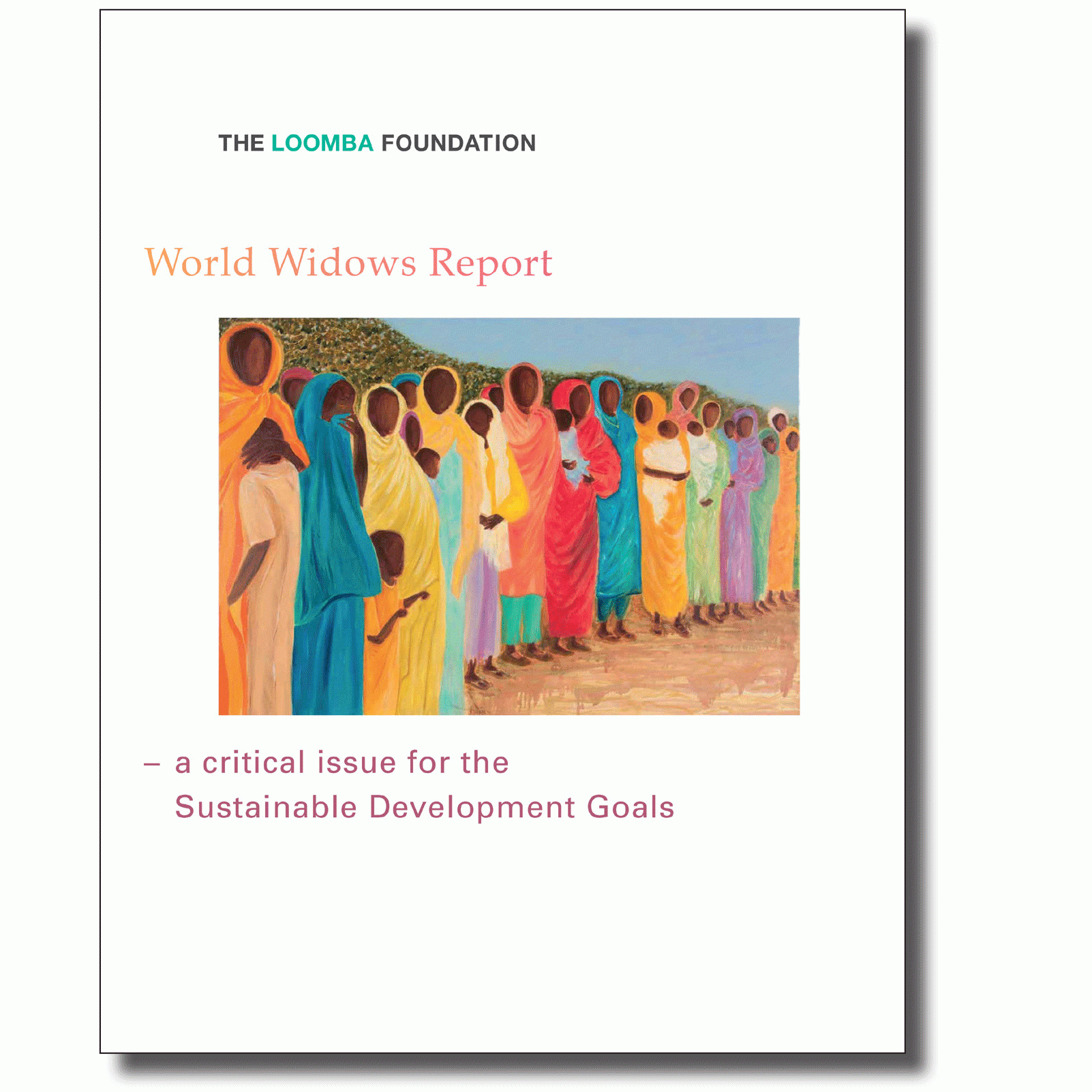The Loomba Foundation's World Widows Report is the only authoritative comprehensive data source about the discrimination and injustice faced by widows and their dependants country by country and worldwide, informing SDG-era policy formulation by the United Nations and national governments.
Key findings include:
- The global affected population numbers 258m widows with 585m children.
- Of these, 38m widows live in extreme poverty where basic needs are unmet.
- Since an earlier Loomba Foundation study in 2010, there has been a significant exacerbation in conflict areas in the Middle East and North Africa, notably the Syrian civil war.
- Worst affected by conflict are widows in Afghanistan, Iraq, South Sudan, Central African Republic and Syria; by the Boko Haram insurgency, those in northeast Nigeria, southeast Niger, west Chad and north Cameroon.
- In Sub-Saharan Africa the worst conditions are faced by evicted and abandoned widows with dependants and by those caught up in the Ebola crisis areas, which is further exacerbated by traditional ‘cleansing’ rituals.
- Widows with only female children and child widows aged between 10 and 17 face severe discrimination in many developing countries.
- Social norms around sexual behaviour remain counterproductive with extreme poverty as a driver of ‘exchange sex’ and ‘survival sex’ relationships and poor quality healthcare.
- Widows in western and developed countries have also been affected by cutbacks in social welfare and increased insecurity.
- Customary ‘cleansing’ rituals, where widows are required to drink the water with which their dead husband’s body has been washed and to have sex with a relative, continue to spread disease and violate the dignity of widows in many Sub-Saharan countries.
- Widows are regularly accused of killing their husbands either deliberately or through neglect – including by transmitting HIV/AIDS – in India, Nepal, Papua New Guinea and Sub-Saharan Africa.
- Systematic seizure of property and evictions by the late husband’s family remains widespread in Angola, Bangladesh, Botswana, Republic of Congo, DR Congo, India, Ivory Coast, Ghana, Kenya, Lesotho, Malawi, Namibia, Nigeria, Rwanda, Senegal, Swaziland, Tanzania, Uganda, Zambia and Zimbabwe.
The World Widows Report was published to coincide with the adoption of the Sustainable Development Goals by the United Nations and provides a basis for researchers, international and local agencies, governments and all who care about gender inequality and the desperate plight of widows to develop sound, evidence-based policy for a better world.
The World Widows Report is produced by The Loomba Foundation
Research by Risto F. Harma
Edited by Kasper de Graaf
Published by Standard:Information


